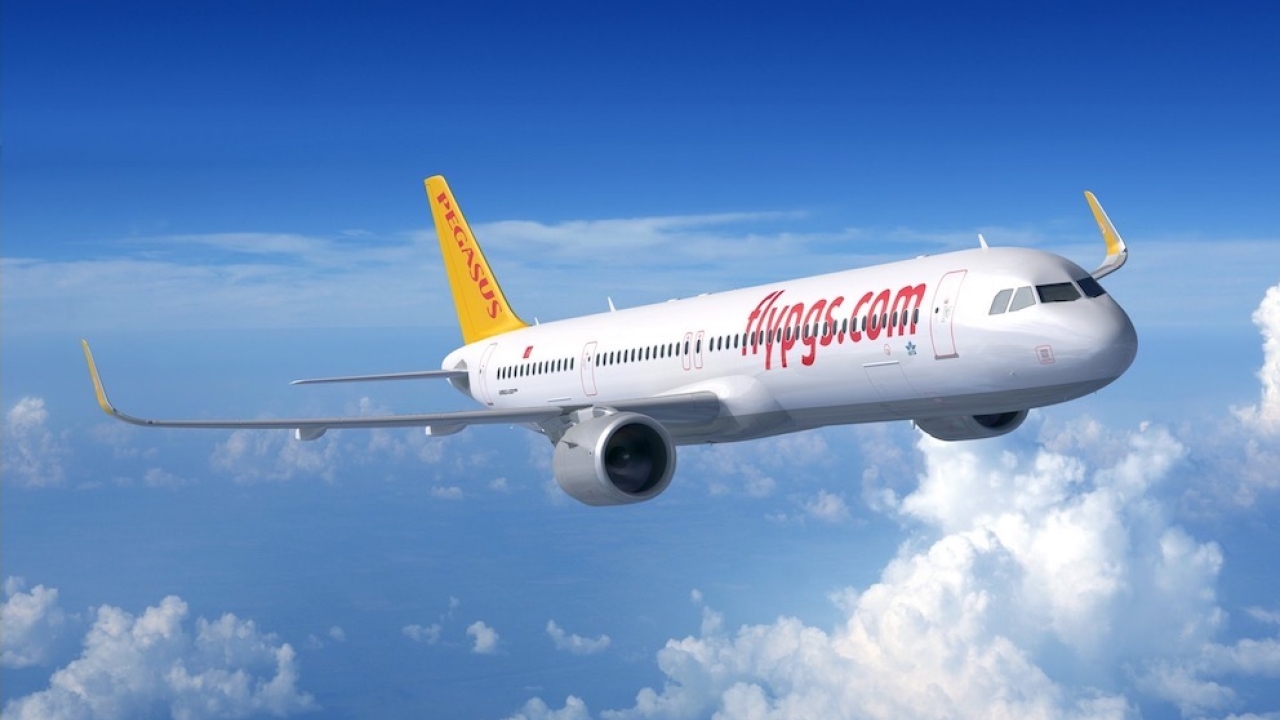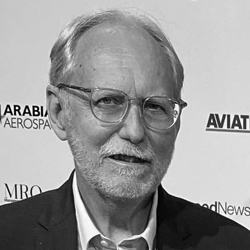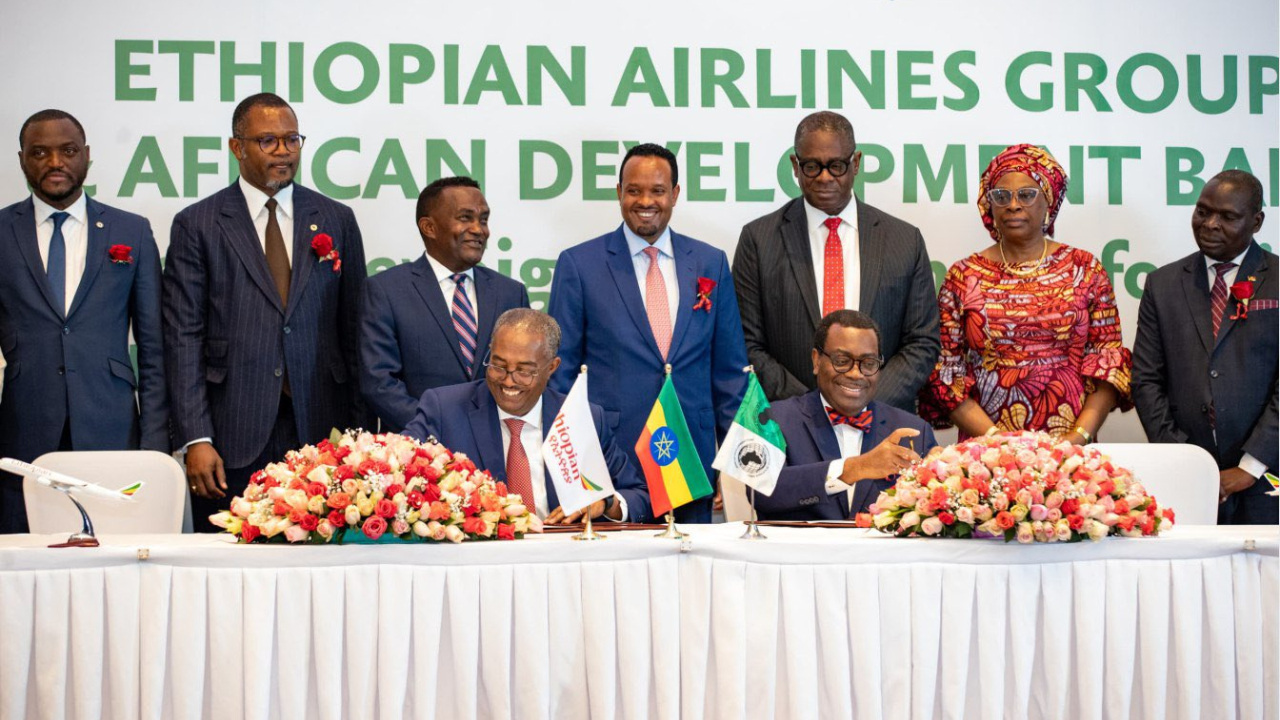E-delivery 'first' leads to a new lease of life
An up-and-coming international aircraft asset manager with roots in Morocco is making a name for itself with innovation and a can-do attitude.

New option: Turkey’s Pegasus Airline received an A321neo in the world’s first e-delivery. Picture: Airbus.
How do you deliver an aircraft during a global pandemic lockdown? Electronically, of course – right up to the factory-to-base ferry flight.
E-delivery is what ABL Aviation calls the process that it pioneered with an Airbus A321neo placed with Pegasus Airlines, the Turkish low-cost carrier, just as the pandemic restrictions started to bite in April 2020.
Ali Ben Lmadani, chief executive of ABL Aviation, credits the pandemic response with accelerating the inevitable. “Covid pushed us to do this,” he said. “In this regard, it was very helpful.”
Moroccan-born Ben Lmadani founded his full-service aircraft investment and independent asset management company in 2014. It now has bases in Casablanca, Dubai, Dublin, Hong Kong and New York.
With more than $2 billion in total capital allocations and 42 aircraft managed, it counts Lufthansa, Delta, Iberia, and Pegasus among its growing list of clients.
In April 2020, when ABL completed the world’s first e-delivery, “nobody was doing it”, although others were also grappling with the challenge. ABL “needed to find a solution”; it was simply a matter of honouring business commitments.
“We discussed with Pegasus the idea of doing this as an e-delivery,” Ben Lmadani said. This meant as much as possible of the normal three phases of delivery – technical acceptance, transfer of title, and ferry flight – had to be completed remotely.
“The technical was done by Airbus directly. Instead of having all the people moving to Toulouse for delivery, with lawyers etc, all the signatures were done remotely.
“Of course, we needed the pilots to deliver the aircraft to the airline, and that was it.”
Since then, ABL has completed several more e-deliveries, including an A320neo for Pegasus, and watched as competitors and banks followed suit.
Innovations seem to be ABL Aviation’s hallmark, and the company is gaining industry recognition for them.
It arranged the first aircraft purchase funded by a Japanese operating lease with call option (JOLCO) combined with Aircraft Finance Insurance Consortium (AFIC) supported debt, enabling a Middle East client to purchase a new Boeing 787-9 aircraft.
It also secured JOLCO financing for the A321 e-delivered to Pegasus.
ABL was the first aircraft asset manager to set up offices in Africa – in 2017 in Casablanca – a milestone for Ben Lmadani as a “proud Moroccan”. It appears to have been a good tactical decision, and adds an interesting dimension to ABL’s network of offices.
Morocco is a “very strong” aviation market, he said. His company is looking at more projects in-country, such as aircraft end-of-life work “like part-out or dismantling, which have lots of added value”. He cites the example of countries, including Spain and France, where comparable industries are established. Morocco, he suggests, “can do better” with its lower cost and “very smart” labour force.
“I’m always trying to see how we can make Moroccan aviation grow,” he added.
From his perspective as a frequent international traveller, Ben Lmadani has reason to be optimistic about the future of aviation and his company’s role in it. The recovery of domestic markets in the US, China, and elsewhere is “amazing”, given the dramatic impact of Covid-19 on the industry.
Among significant ramifications of the pandemic downturn was the widespread renegotiation of lease terms by airlines, and the boost overall to leasing. Operators, he said, are “more and more inclined to lease”.
Covid-19 gave a significant push to leasing and reinforced the perception of aircraft leasing as a separate business to running an airline.
“Owning the value on assets shouldn't be the business of the airline; that should be the business of leasing companies. So, [the risk of] having the future value of an asset on your balance sheet [when] you don’t know if you’re going to need it five years from now should be taken by someone else.”
ABL Aviation’s global insights report of September 2021 noted that lessors now own nearly half of all aircraft on the market, and lease rates per seat are now lower, in actual dollar terms, than they were 30 years ago; in real terms, they’re probably half of what they were when leasing was in its infancy.
In the Middle East, leased aircraft have long been present in the fleets of operators such as Emirates, Flydubai and Qatar Airways. Ben Lmadani said: “They were new companies and they were smart about it. I think they leased more than some of the old-time legacy carriers at that time.
“If I were CEO of an airline, my job is to market seats. My job is to make sure that my profit and loss is all right. My job is to negotiate with lessors to make sure that I have a good lease. My job is not to have a bunch of metal on my balance sheet that I’m stuck with if I change my business model.
“This is the way the world is going; this is where the smart airlines in the Middle East – and you have lots of them – are going. They are leasing, similar to some of the airlines in the US, which I think is the future.”
The economics of aviation are impossible to ignore, he added. “Without aviation, there is no business.” As well as facilitating trade and investment, the support industries surrounding aviation make a huge contribution to a country’s economy.
“If you look at the Emirates, you have this whole ecosystem that is built on aviation. I think it was very smart, developing as it’s needed. We saw that in Jordan, with a lot of investment being done in aviation, and in Morocco [which is] pushing very hard to become the hub of African innovation.”
In the aftermath of Covid and with a growing urgency for sustainable operations, fleet renewal is high on the agenda; airlines “are getting rid of the old fleet now and leasing the new fleet because they see that there’s good opportunities. There will always be a need for aircraft.”
Stay up to date
Subscribe to the free Times Aerospace newsletter and receive the latest content every week. We'll never share your email address.


